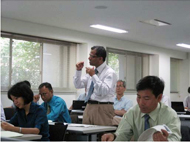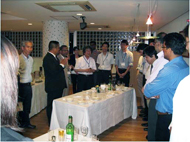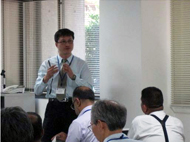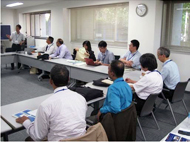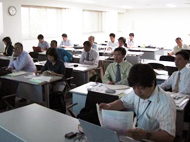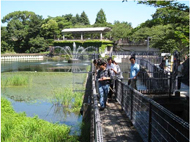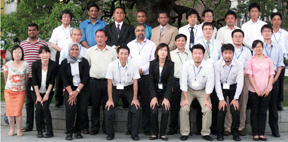Events
International Seminar on Sanitation Constraints Classification and Alternatives Evaluation for Asian cities
Date: July 20 - 21, 2010
Venue: Meeting Room, Graduate School of Global Environmental Studies, Kyoto University
Organized by:
Graduate School of Global Environmental Studies, Kyoto University
Co-organized by:
- Global COE Program "Global Center for Education and Research on Human Security Engineering for Asian Megacities"
- Strategic Coordination Fund "International
Center for Human Resource Development in Environmental Management"
Number of attendants: 33
Report 111
Outline
The International Seminar on Sanitation Constraints Classification and Alternatives Evaluation
Report
In this seminar, we invited 10 researchers from nine Asian cities: Hanoi, Danang Hue, Bangkok, Khulna, Kandy, Shenzhen, Johor Bahur, and Kathmandu. The seminar was opened by the opening address of Prof. Shigeo Fujii, who is the leader of an international research project, "Sanitation Constraints Classification and Alternatives Evaluation for Asian cities (SaniCon-Asia project)". The progress report of the project and the presentation of the Japanese experiences of sanitary improvement were given. Then, presentations on water and sanitation in nine Asian cities were provided by the invited researchers from each city. Together with presentations, regionally-specific sanitation constraints were discussed among participants. The day of this seminar was closed with reception among participants offering the Japanese professors a chance to strengthen the ties with the researchers from nine Asian cities. Also, a technical tour on the water management around Lake Biwa was organized on the next day of the seminar. Through the seminar, the participants have a mutual understanding of sanitation constraints in each city. Thus, the seminar was completed with great success.
